Remind your students about the most commonly used silent letters with this set of classroom display posters.
Silent Letter Rules Explained!
Silent letters are everywhere in the English language. At the beginning, in the middle or at the end of words… these letters don’t care where they are placed; they’re just keen to come along for the ride!
Fortunately, there are some rules to help our students understand when and where silent letters pop up in the words they decode (read) and encode (spell). However; it is important that our students understand that, like most rules, these ones were made to be broken!
This set of eight posters outlines some of the common rules surrounding the use and placement of silent letters within words. These are as follows:
- Silent W: W is silent when it comes before the letter r, as in wrong. W is often silent at the beginning of a word.
- Silent K: K is silent when it comes before the letter n, as in knee. K is often silent at the beginning of a word.
- Silent G: G is silent when it comes before the letter n, as in gnome. G can be silent at any position within a word.
- Silent H: H can be silent when it comes after the letter w, as in why, and the letter g, as in ghost. H can sometimes be silent at the beginning of a word, as in hour.
- Silent B: B is silent when it comes after the letter m at the end of a word, as in lamb. B is usually silent when it comes before the letter t, as in debt.
- Silent N: N is usually silent when it comes after the letter m at the end of a word, as in column.
- Silent L: L is usually silent when it comes after the vowels a, o, and u.
- Silent T: T can be silent when it comes after the letter s, as in listen. T is silent when it comes after a vowel and before the digraph -ch, as in catch.
How to Make the Most of These Silent Letters Posters
This set of posters has been created to support phonics instruction in your classroom. You may wish to use it in the following ways:
- Print the posters on A3 paper and display them in your classroom as a reminder of the guidelines surrounding silent letters and their use.
- As you teach each silent letter, provide students with a smaller version of the poster to paste into their workbooks.
- Use the resource as a word wall display by adding examples of words containing each silent letter around each poster.
Download the File Format That Best Suits Your Classroom!
Use the dropdown menu next to the PDF or Google Slides version of this resource.
This resource was created by Anna Helwig, a Teach Starter collaborator.
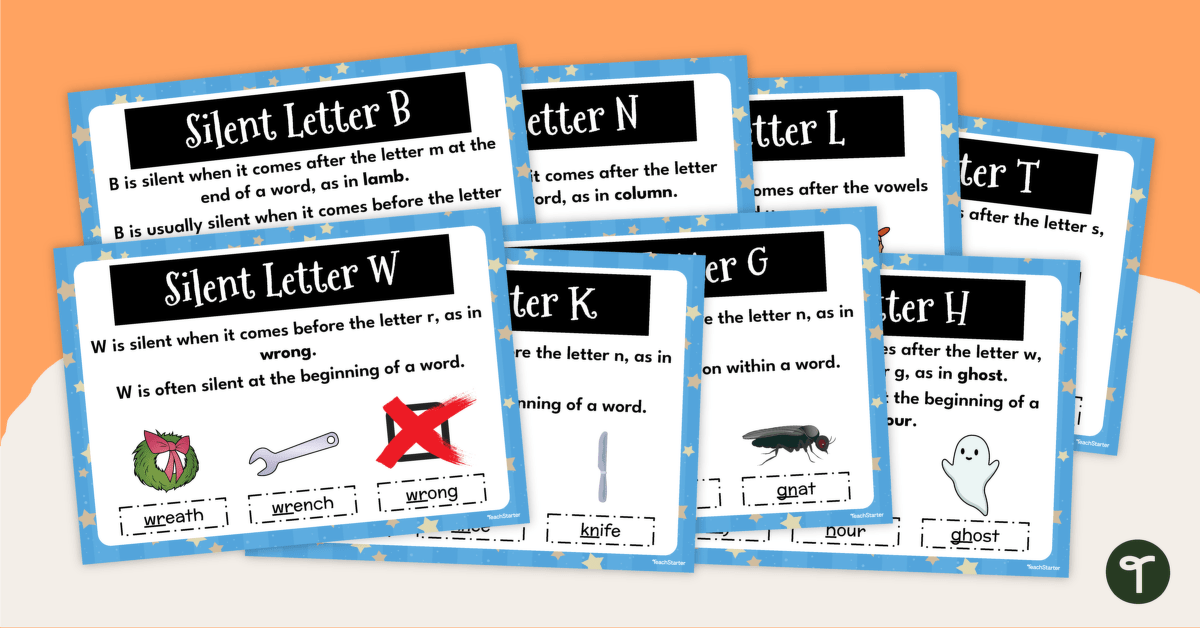

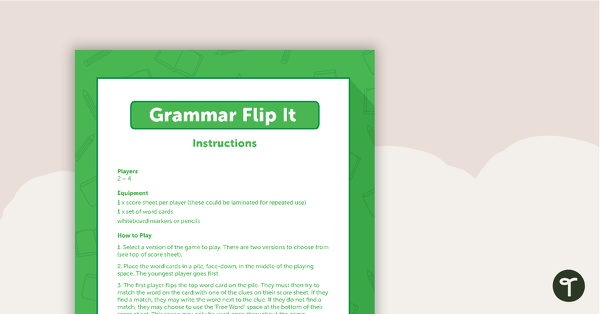

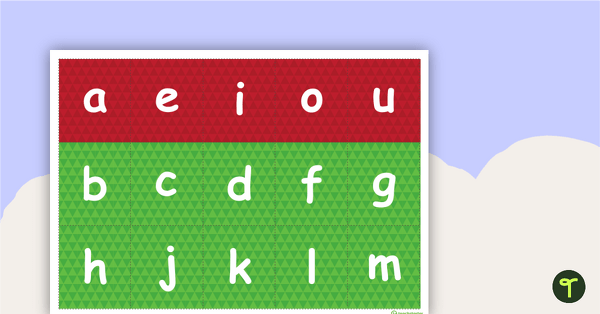
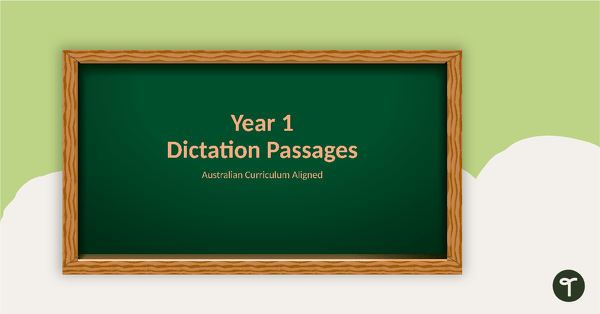
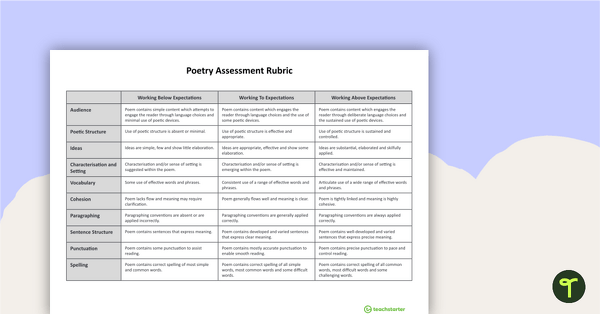
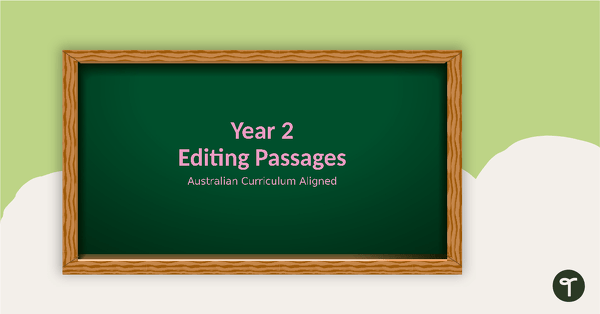
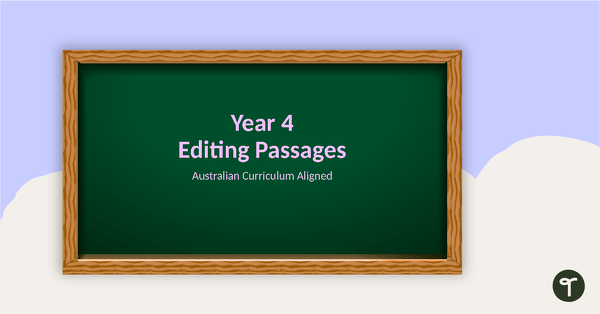
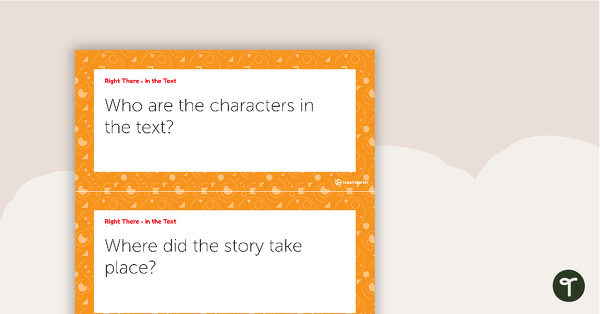
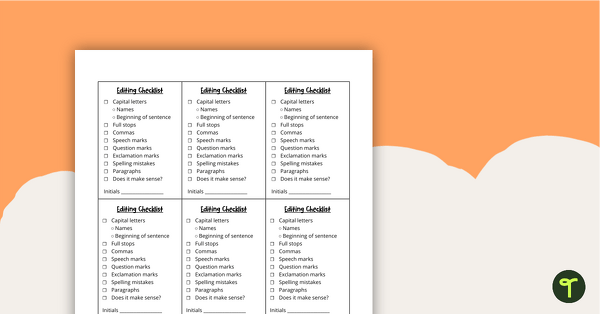
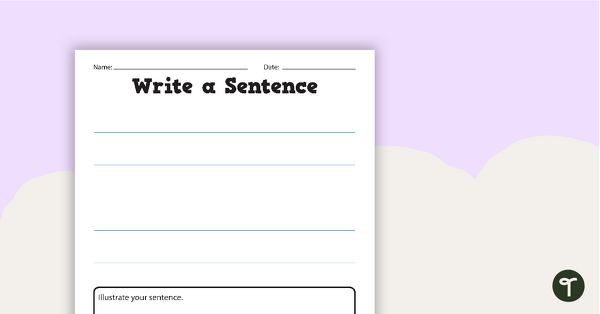
0 Comments
Write a review to help other teachers and parents like yourself. If you'd like to request a change to this resource, or report an error, select the corresponding tab above.